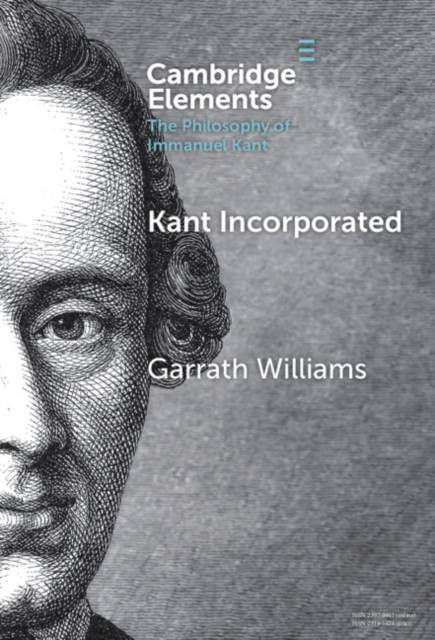
Bedankt voor het vertrouwen het afgelopen jaar! Om jou te bedanken bieden we GRATIS verzending (in België) aan op alles gedurende de hele maand januari.
- Afhalen na 1 uur in een winkel met voorraad
- In januari gratis thuislevering in België
- Ruim aanbod met 7 miljoen producten
Bedankt voor het vertrouwen het afgelopen jaar! Om jou te bedanken bieden we GRATIS verzending (in België) aan op alles gedurende de hele maand januari.
- Afhalen na 1 uur in een winkel met voorraad
- In januari gratis thuislevering in België
- Ruim aanbod met 7 miljoen producten
Zoeken
€ 112,95
+ 225 punten
Uitvoering
Omschrijving
Corporations are legal bodies with duties and powers distinct from those of individual people. Kant discusses them in many places. He endorses universities and churches; he criticises feudal orders and some charitable foundations; he condemns early business corporations' overseas activities. This Element argues that Kant's practical philosophy offers a systematic basis for understanding these bodies. Corporations bridge the central distinctions of his practical philosophy: ethics versus right, public versus private right. Corporations can extend freedom, structure moral activity, and aid progress towards more rightful conditions. Kant's thought also highlights a fundamental threat. In every corporation, some people exercise the corporation's legal powers, without the same liabilities as private individuals. This threatens Kant's principle of innate equality: no citizen should have greater legal rights than any other. This Element explores the justifications and safeguards needed to deal with this threat. This title is also available as Open Access on Cambridge Core.
Specificaties
Betrokkenen
- Auteur(s):
- Uitgeverij:
Inhoud
- Aantal bladzijden:
- 90
- Taal:
- Engels
- Reeks:
Eigenschappen
- Productcode (EAN):
- 9781009641371
- Verschijningsdatum:
- 30/10/2025
- Uitvoering:
- Hardcover
- Formaat:
- Genaaid
- Afmetingen:
- 152 mm x 229 mm
- Gewicht:
- 290 g

Alleen bij Standaard Boekhandel
+ 225 punten op je klantenkaart van Standaard Boekhandel
Beoordelingen
We publiceren alleen reviews die voldoen aan de voorwaarden voor reviews. Bekijk onze voorwaarden voor reviews.









